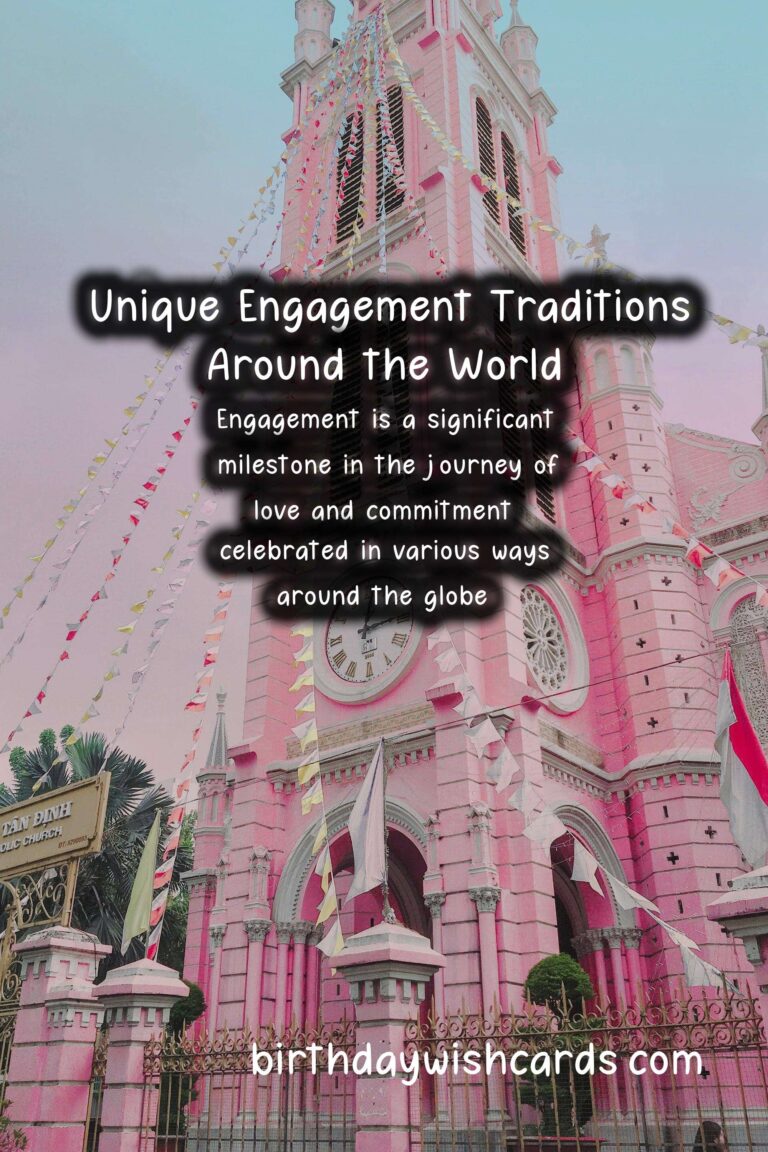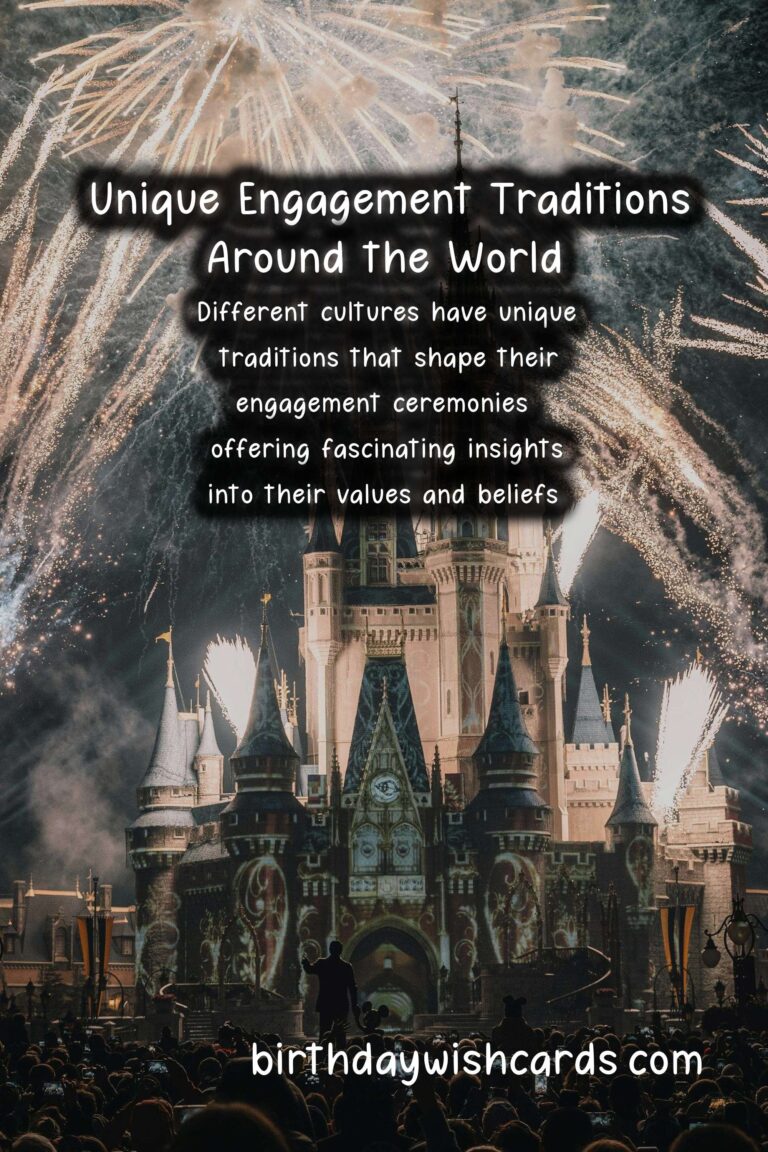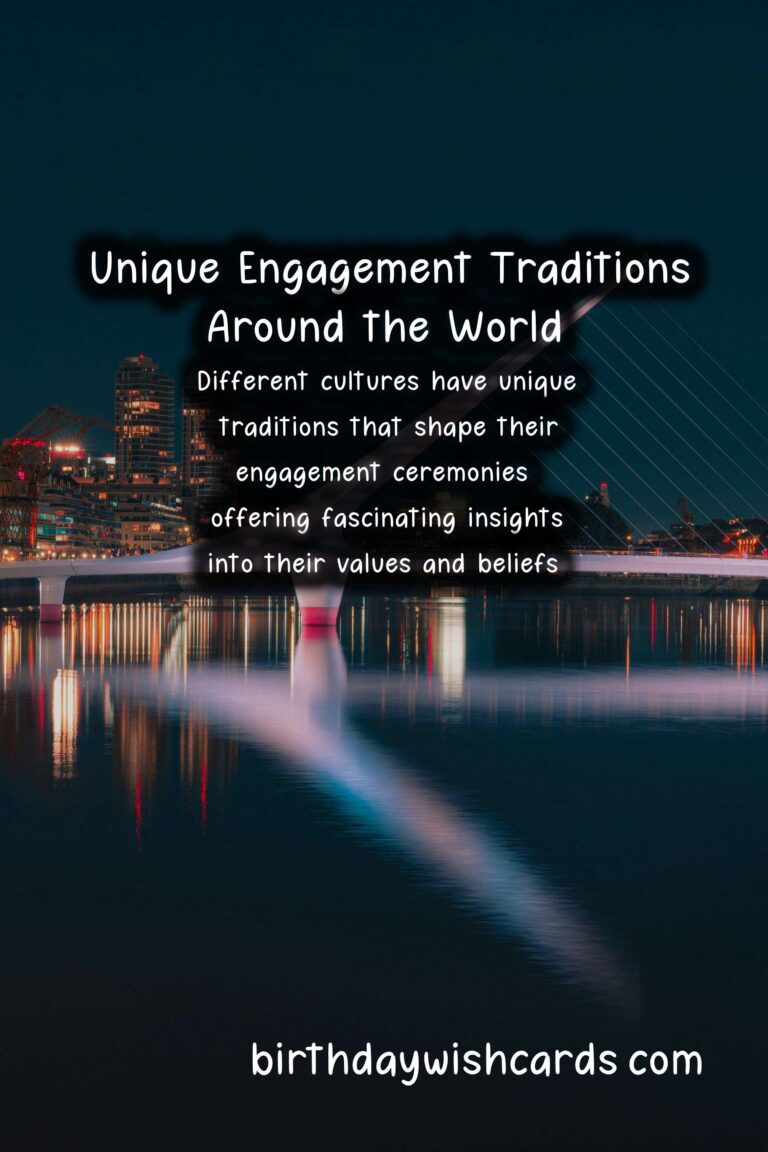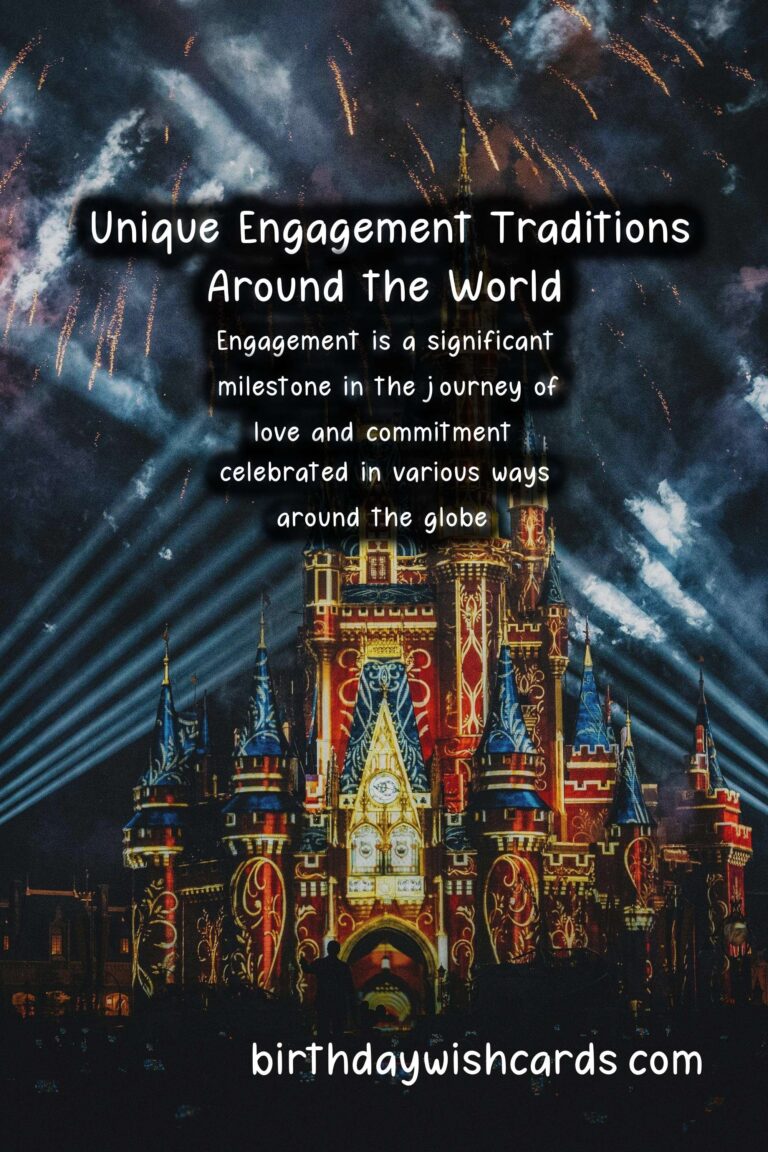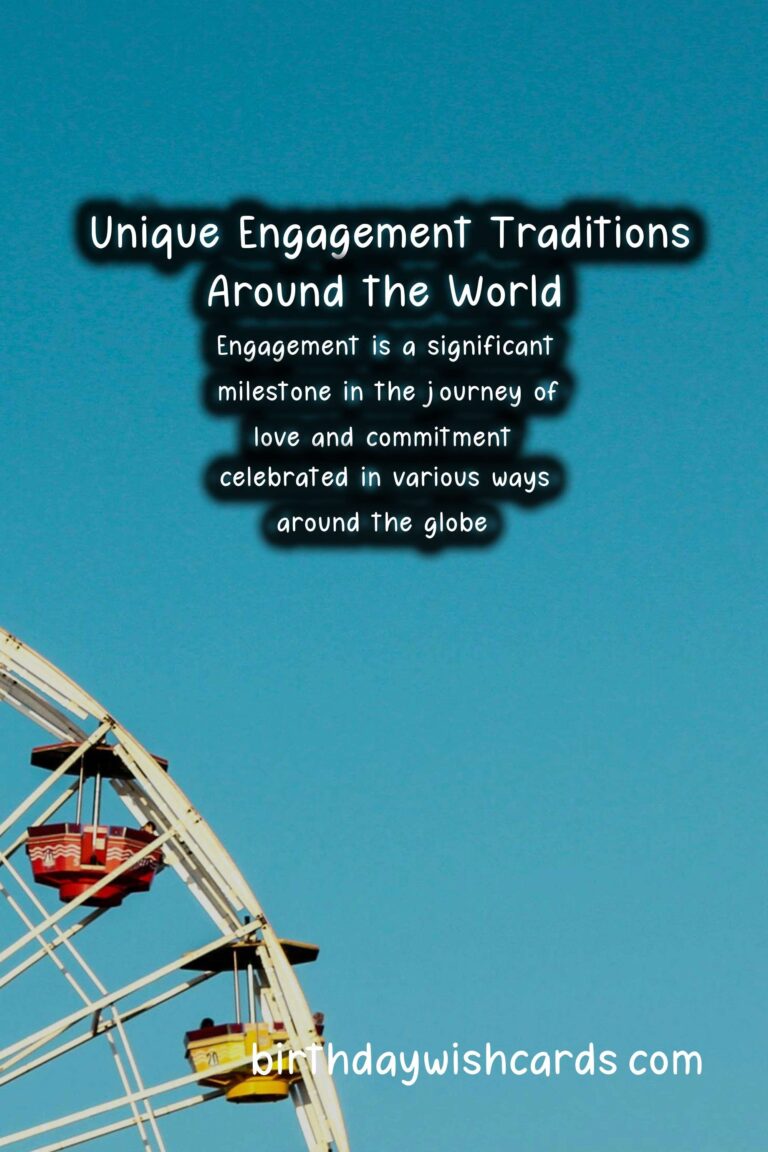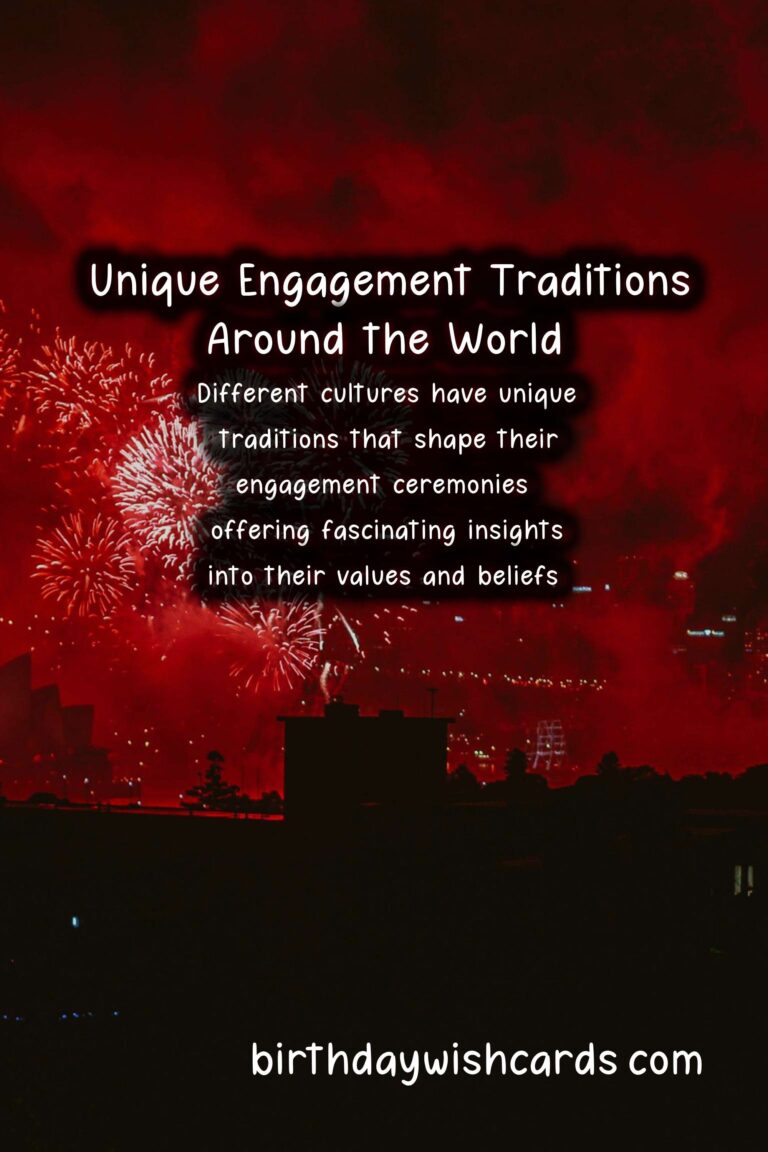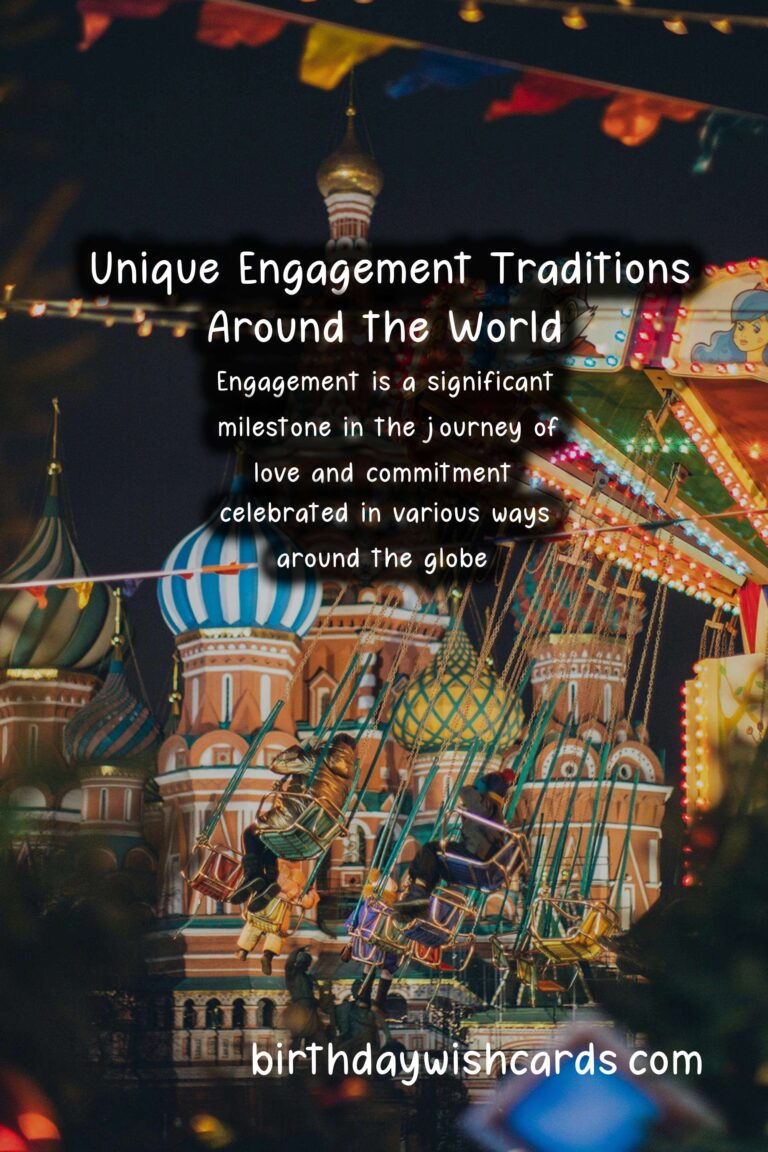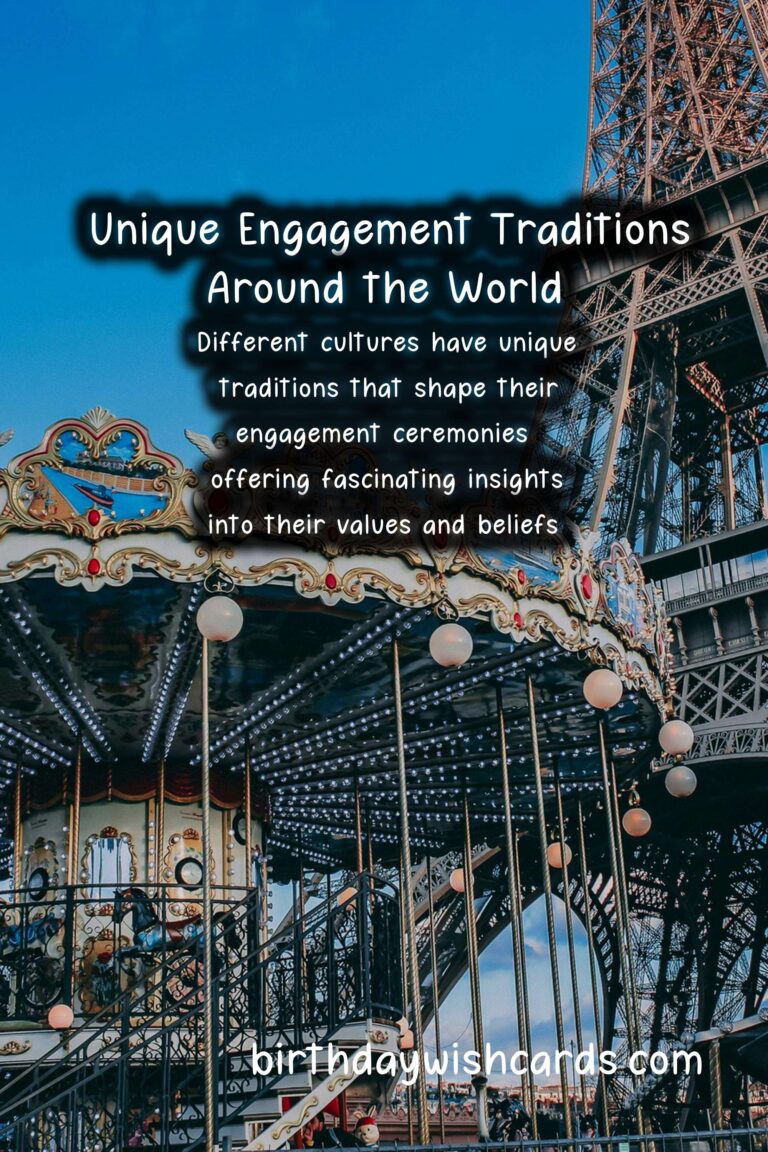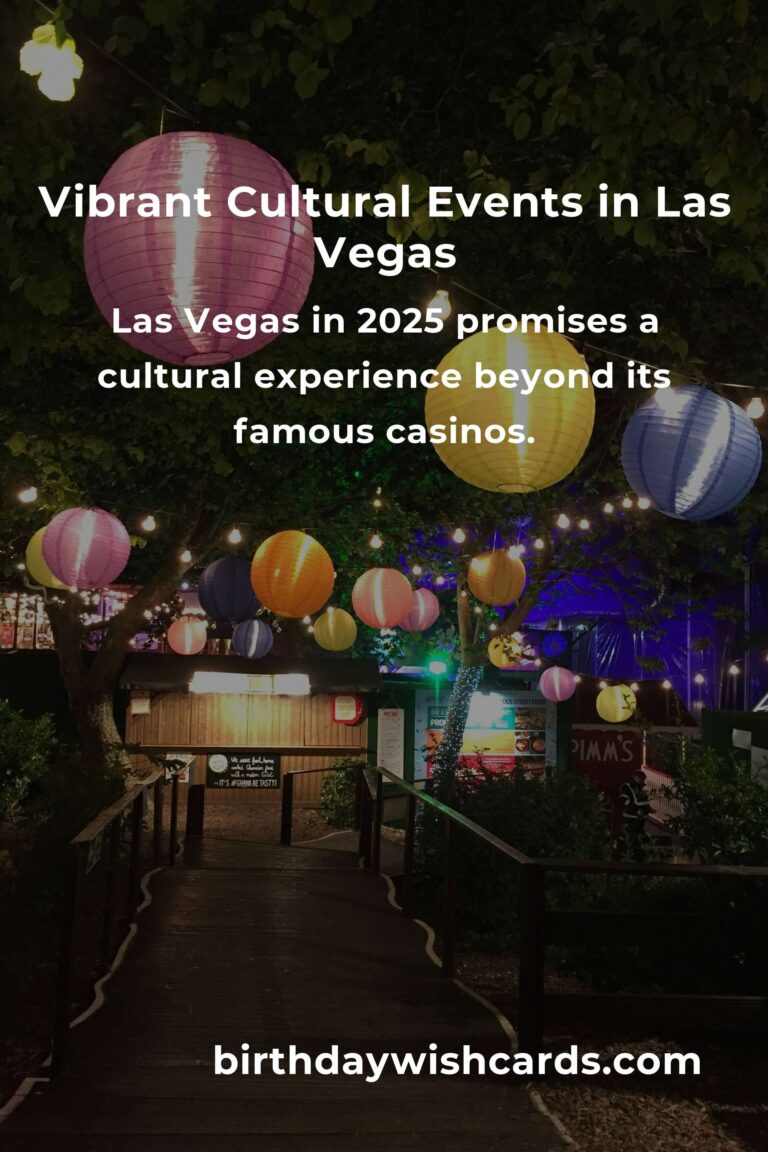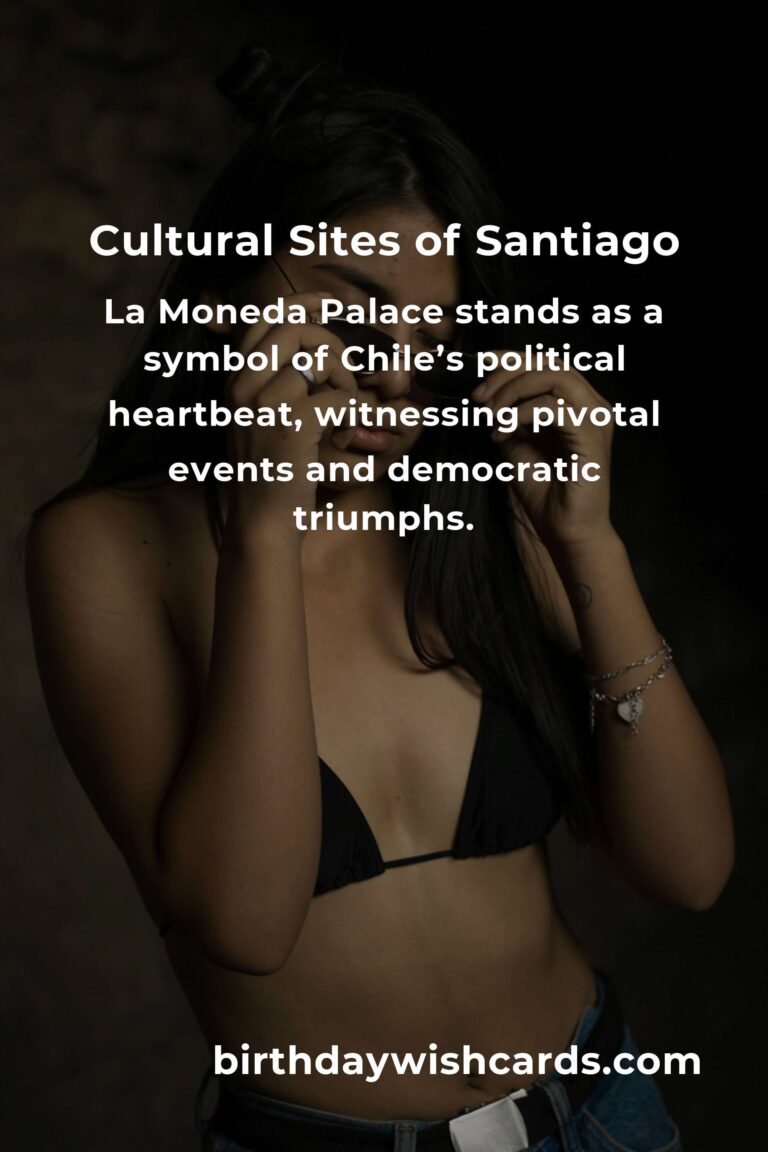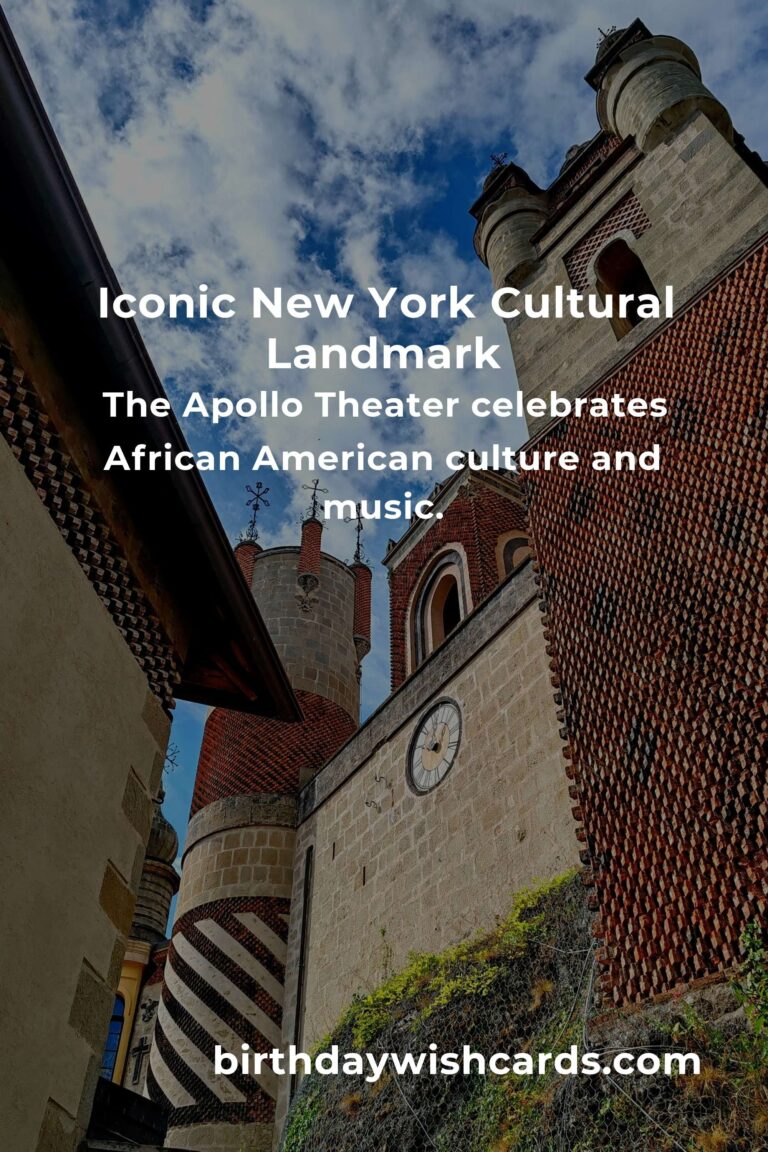
Engagement is a significant milestone in the journey of love and commitment, celebrated in various ways around the globe. Different cultures have unique traditions that shape their engagement ceremonies, offering fascinating insights into their values and beliefs. In this article, we explore some of these unique engagement traditions from various countries.
1. The Philippines: Pamamanhikan
In the Philippines, the tradition of ‘Pamamanhikan’ is an essential part of engagement. This practice involves the families of both the bride and groom meeting to discuss the upcoming wedding plans. It is a formal meeting where the groom and his family visit the bride’s household to ask for her hand in marriage and negotiate details regarding the wedding.
This tradition emphasizes family involvement and respect, showcasing the importance of familial bonds in Filipino culture.
2. India: Ring Ceremony
In India, the engagement is often marked by a ceremonial event, commonly known as the ‘Ring Ceremony’ or ‘Sagai.’ During this event, the couple exchanges rings in the presence of family and friends. The ceremony is typically vibrant, featuring traditional music, dancing, and an elaborate meal.
Each community within India may have its own specific customs, but the core essence of celebrating love and commitment remains a central theme.
3. Scotland: Handfasting
One of the oldest engagement traditions can be found in Scotland—Handfasting. Historically, handfasting involved the couple tying their hands together with a tartan cloth to symbolize their union. This ritual could be seen as a trial marriage, lasting for a year and a day, after which the couple could choose to either marry officially or part ways.
Modern interpretations of handfasting can still be seen in many weddings today, emphasizing the concept of unity and love.
4. Nigeria: Marriage Proposal
In Nigeria, the engagement and marriage proposal process often encompasses elaborate traditions that vary by ethnic groups. For the Yoruba people, the groom’s family typically presents a list of items to the bride’s family, including money, clothing, and other gifts, to demonstrate their seriousness.
These items are essential as they signify respect for the bride’s family and commitment to the union.
5. Japan: Yuino
In Japan, ‘Yuino’ refers to the traditional engagement ceremony where both families exchange gifts. These gifts usually include symbolic items like sake and elaborately prepared food, which represents support and blessings for the couple’s future together.
This ceremony highlights the importance of family acceptance and intertwining lives, showcasing deep-rooted cultural values.
6. China: Betrothal Gifts
Chinese engagement traditions emphasize the exchange of betrothal gifts known as ‘Cai Li.’ The groom’s family presents gifts to the bride’s family in a gesture of goodwill and respect. These gifts often include items such as tea, jewelry, and sweet treats.
The gifts not only symbolize the groom’s intentions but also mark the beginning of the wedding festivities.
7. Italy: La Bottega dei Sogni
In certain regions of Italy, couples participate in a tradition known as ‘La Bottega dei Sogni,’ which translates to ‘The Workshop of Dreams.’ This engagement ritual is about couples creating their dream wedding together through collaborative planning, emphasizing partnership and mutual decision-making.
This practice enhances the couple’s bond and symbolizes their shared aspirations.
8. France: La Demande en Mariage
In France, the tradition called ‘La Demande en Mariage’ refers to the proposal itself, often enveloped in romance and elegance. French proposals typically take place in picturesque settings, further romanticizing the engagement experience.
Once the proposal is accepted, engagement celebrations often take on a sophisticated flair, with family and friends joining for intimate gatherings.
9. Mexico: Traditional Engagement Celebration
In Mexico, engagement celebrations involve a mix of family gatherings and colorful festivities known as ‘Compromiso.’ These events often include mariachi bands, traditional dances, and a feast that brings families together to honor the couple’s union.
Mexican culture values community and family, evident in the way engagements are celebrated.
10. Colombia: The Arras
In Colombian engagements, the ‘Arras’ tradition is a symbolic act where the groom presents the bride with 13 gold coins. These coins represent Jesus and his Apostles, symbolizing the groom’s commitment to provide for the bride and the household they will create together.
This tradition underscores the importance of faith and responsibility in the couple’s future.
As we have seen, the engagement traditions around the world are rich with culture and significance. From the family-oriented practices of the Philippines to the romantic proposals in France, each tradition tells a story about love, respect, and commitment. These unique customs highlight the diverse ways people celebrate one of life’s most cherished moments, reminding us that love transcends borders.
Engagement is a significant milestone in the journey of love and commitment, celebrated in various ways around the globe. Different cultures have unique traditions that shape their engagement ceremonies, offering fascinating insights into their values and beliefs. 

